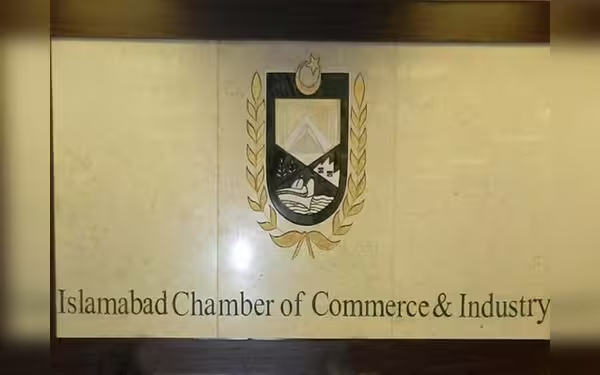Thursday, November 7, 2024 03:31 AM
ICCI Urges Economic Policy Reforms to Revive Pakistan's Industries
- ICCI blames inconsistent policies for industry closures.
- Export capabilities need urgent enhancement.
- Rising business costs threaten economic stability.
 Image Credits: brecorder
Image Credits: brecorderICCI highlights the need for consistent economic policies to revive Pakistan's industries and enhance export capabilities amid rising business costs.
In recent times, Pakistan's economy has faced numerous challenges, leading to a significant impact on its industrial sector. The Islamabad Chamber of Commerce and Industry (ICCI) has raised concerns regarding the inconsistent economic policies that have contributed to stalled growth and the closure of various industries. This situation has prompted calls for collective efforts to steer the country towards a path of economic recovery.
ICCI President Nasir Mansoor Qureshi has been vocal about the urgent need to enhance Pakistan's export capabilities. He believes that improving exports is essential for pulling the country out of its current economic crisis. To achieve this, Qureshi has proposed the use of diverse marketing strategies, including delegations, social media campaigns, and webinars, to boost the country's exports.
One of the major hurdles identified by Qureshi is the rising cost of doing business in Pakistan. Factors such as inflated energy prices, increased policy rates, and inconsistent economic policies have created a challenging environment for businesses. These issues have not only led to unemployment but have also forced many industries to shut down.
To combat these challenges, Qureshi emphasized the importance of tapping into the untapped export potential in various sectors. He highlighted areas such as halal food, pharmaceuticals, information technology, engineering, surgical instruments, and sports goods as key sectors that could significantly contribute to the economy if properly developed.
Strategic partnerships in international markets are crucial, according to Qureshi. He advocates for the facilitation of the private sector in marketing products globally, which includes participating in trade exhibitions and exchanging business delegations. This approach could open new avenues for Pakistani products and enhance their visibility in the global market.
Furthermore, Qureshi proposed that the export development fund should be utilized to provide subsidies to the Small and Medium Enterprises (SME) sector, particularly focusing on women entrepreneurs. Supporting these businesses is vital for fostering growth and innovation within the economy.
Another significant recommendation made by the ICCI president is the strict evaluation of the performance of commercial attachés stationed abroad. He suggested that these officials should be assigned specific export-related tasks, and if they fail to meet their targets, they should be replaced. This accountability could lead to more effective representation of Pakistani products in international markets.
Lastly, Qureshi stressed the need for rational taxation policies. He criticized the Federal Board of Revenue (FBR) for what he described as harassment of the business community. Instead of burdening existing taxpayers, he emphasized the importance of broadening the tax net to include more contributors to the economy.
The ICCI's call for action highlights the pressing need for a cohesive strategy to revitalize Pakistan's economy. By addressing the challenges faced by industries and enhancing export capabilities, the country can pave the way for sustainable economic growth. It is essential for all stakeholders, including the government and the private sector, to work together to create a conducive environment for businesses to thrive. Only through collective efforts can Pakistan hope to overcome its economic hurdles and secure a prosperous future.













